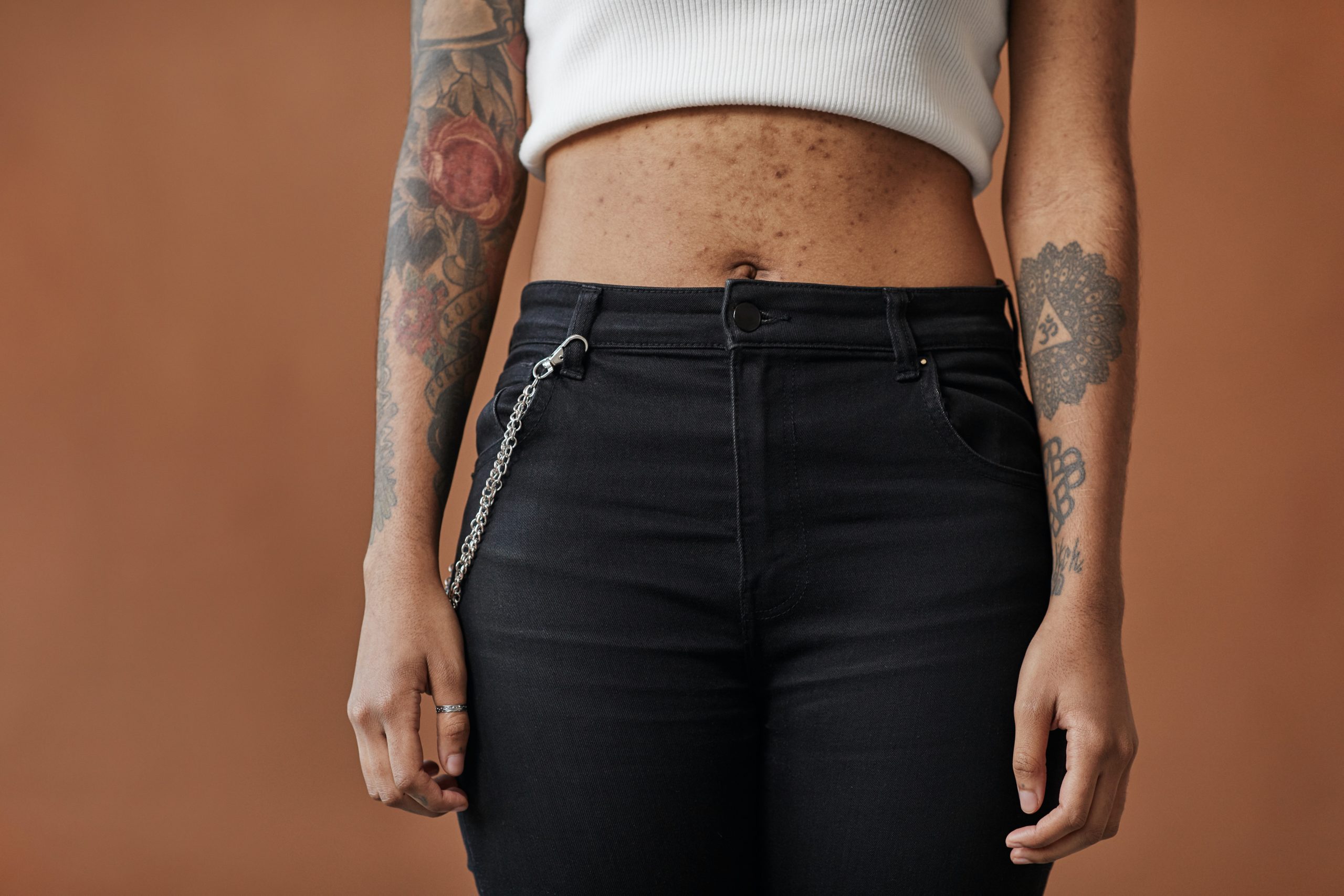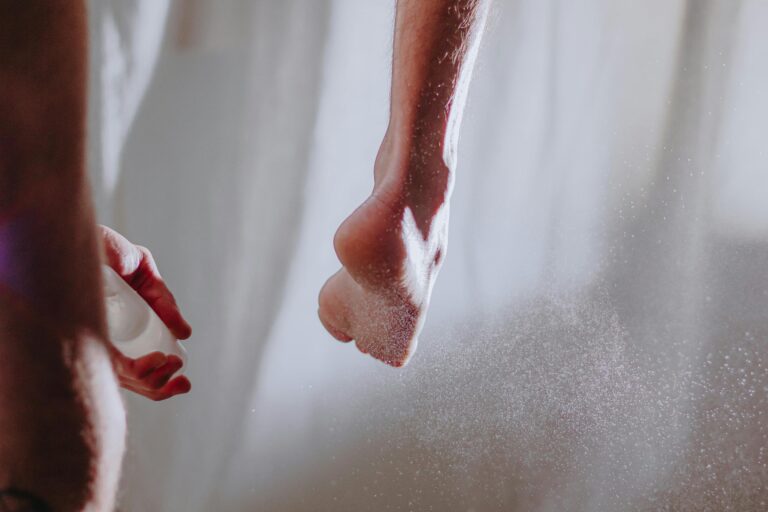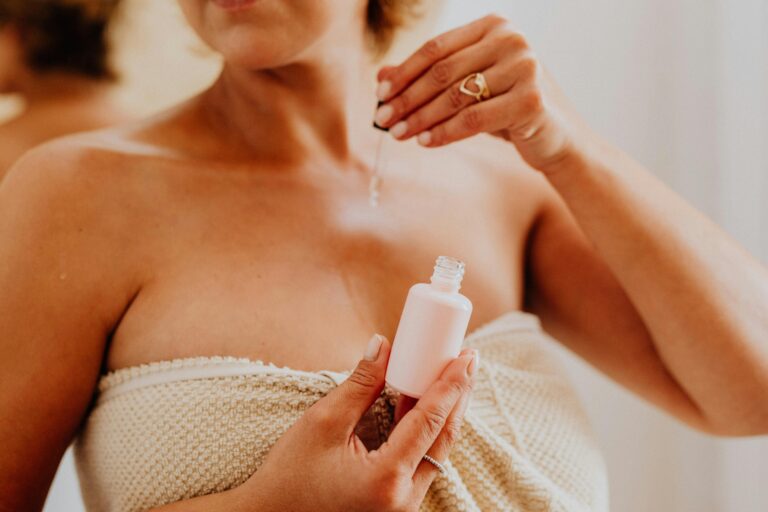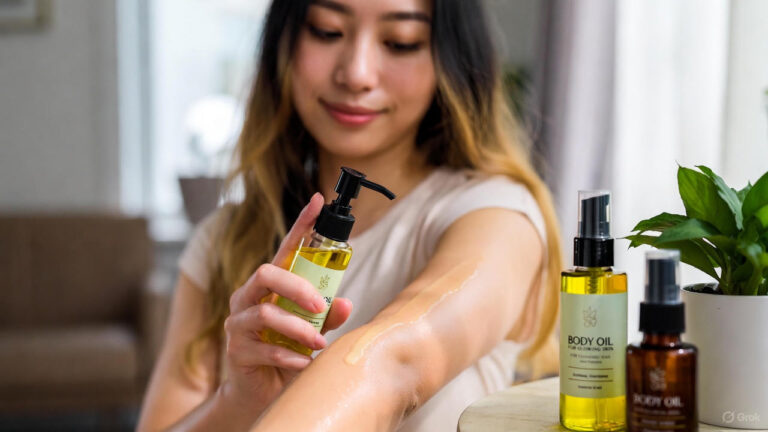Acne is a common skin condition that affects millions of people worldwide. While most people associate acne with the face, it can also occur on other parts of the body, such as the chest, back, and shoulders.
Body acne can be just as frustrating and embarrassing as facial acne, and it can be challenging to get rid of. If you’re struggling with body acne, don’t worry; we’ve got you covered.
In this article, we’ll explore 13 lesser-known tricks that can help you get rid of body acne.
1. Use Tea Tree Oil
Tea tree oil is a natural anti-inflammatory and antibacterial agent that can help reduce inflammation and kill acne-causing bacteria on the skin.
To use tea tree oil for body acne, mix a few drops of tea tree oil with carrier oil, such as jojoba or coconut oil, and apply the mixture to the affected area.
Alternatively, you can add a few drops of tea tree oil to your body wash or lotion.
2. Exfoliate Regularly
Exfoliating your skin regularly can help remove dead skin cells and unclog pores, preventing the buildup of oil and bacteria that can lead to body acne.
There are two main types of exfoliation: physical and chemical. Physical exfoliation involves using a scrub or brush to physically remove dead skin cells.
Chemical exfoliation involves using acids, such as salicylic acid or glycolic acid, to dissolve dead skin cells.
3. Keep Your Skin Clean
Keeping your skin clean is essential for preventing and treating body acne. Be sure to shower or bathe daily and use a gentle cleanser to wash your body. Avoid using harsh soaps or scrubs that can strip your skin of its natural oils and irritate your skin.
4. Use a Benzoyl Peroxide Body Wash
Benzoyl peroxide is a powerful acne-fighting ingredient that can help kill acne-causing bacteria on the skin. Using a benzoyl peroxide body wash can help prevent and reduce body acne.
Be sure to start with a lower concentration of benzoyl peroxide and gradually increase the strength as your skin adjusts.
5. Wear Loose Clothing
Wearing tight clothing can trap sweat and bacteria against your skin, contributing to the development of body acne. Opt for loose-fitting clothing made of breathable materials, such as cotton or linen.
Avoid wearing tight-fitting workout clothes for extended periods, and change out of sweaty clothing as soon as possible.
6. Change Your Bedding Regularly
Dirty bedding can harbor bacteria and oil that can transfer to your skin, causing body acne. Be sure to change your bedding at least once a week and wash your sheets and pillowcases in hot water to kill bacteria.
7. Use an Acne-Fighting Body Lotion
Using an acne-fighting body lotion can help prevent and treat body acne. Look for a lotion that contains ingredients such as salicylic acid, benzoyl peroxide, or alpha hydroxy acids, which can help exfoliate the skin and unclog pores.
8. Avoid Certain Foods
While there is no direct link between diet and acne, certain foods can trigger inflammation in the body and worsen acne symptoms. Foods high in sugar, dairy products, and processed foods have been known to aggravate acne.
Try avoiding these foods and incorporating more fresh fruits, vegetables, and lean proteins into your diet.
9. Use an Acne Body Spray
An acne body spray is a convenient way to treat body acne. Look for a spray that contains ingredients such as salicylic acid, tea tree oil, or benzoyl peroxide, which can help reduce inflammation and kill acne-causing bacteria. Spray the affected area after showering or bathing and allow it to dry before dressing.
10. Try Light Therapy
Light therapy is a non-invasive treatment that uses different wavelengths of light to kill acne-causing bacteria and reduce inflammation. Blue light therapy, in particular, has been shown to be effective in treating body acne. Talk to your dermatologist about whether light therapy is right for you.
11. Take Zinc Supplements
Zinc is an essential mineral that has been shown to help reduce inflammation and regulate oil production in the skin. Taking zinc supplements can help improve acne symptoms, including body acne. Talk to your doctor before taking any supplements.
12. Reduce Stress
Stress can trigger the production of hormones that can worsen acne symptoms. Finding ways to manage stress, such as practicing yoga or meditation, can help reduce inflammation and improve overall skin health.
13. Use an Aloe Vera Gel
Aloe vera is a natural anti-inflammatory and antibacterial agent that can help soothe inflamed skin and kill acne-causing bacteria. Apply aloe vera gel to the affected area and leave it on for 15-20 minutes before rinsing off with warm water. Repeat this process 2-3 times a week.
Conclusion
Body acne can be frustrating and challenging to get rid of, but with the right approach and some helpful tips, you can achieve clear, smooth, and healthy-looking skin. Using these 13 lesser-known tricks into your skincare routine can help prevent and treat body acne. Remember to consult with your dermatologist if your acne symptoms persist or worsen.
FAQs
1. What is the most effective way to get rid of body acne?
There is no one-size-fits-all answer to this question as the effectiveness of treatments varies depending on the individual. However, incorporating a combination of treatments such as using an acne-fighting body wash, exfoliating regularly, and wearing loose clothing can help prevent and treat body acne.
2. Can diet affect body acne?
While there is no direct link between diet and acne, certain foods such as those high in sugar, dairy, and processed foods can trigger inflammation in the body and worsen acne symptoms.
3. Is it necessary to see a dermatologist for body acne?
If your body acne persists or worsens despite using over-the-counter treatments, it may be necessary to see a dermatologist. They can provide a more personalized treatment plan and prescribe stronger medications if necessary.
4. How often should I exfoliate my skin to prevent body acne?
Exfoliating 1-2 times per week can help prevent the buildup of dead skin cells, which can clog pores and lead to body acne. However, be careful not to over-exfoliate, as this can cause skin irritation and worsen acne symptoms.
5. Can light therapy effectively treat body acne?
Light therapy, specifically blue light therapy, has been shown to be effective in treating body acne. However, it is important to consult with a dermatologist to determine if light therapy is the right treatment option for your specific case of acne.
6. Is it safe to use aloe vera gel on the skin?
Aloe vera gel is generally safe to use on the skin, but it is important to do a patch test before applying it to larger areas. Some people may be allergic to aloe vera, and it can cause skin irritation in rare cases.
7. Can stress cause body acne?
Stress can trigger the production of hormones that can worsen acne symptoms, including body acne. Finding ways to manage stress, such as practicing yoga or meditation, can help reduce inflammation and improve overall skin health.



